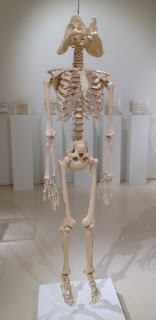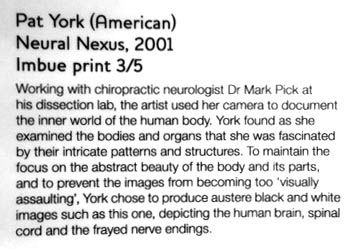In Cork last month, I saw part of this performance piece by Orla Barry, "reflecting on the primal, poetic and unpredictable bond we have with the natural world."
I was only there briefly, but there was time to watch her video about the imagined experience of one her lambs being taken to market and sold on . Really moving. The above link will give more information about this interesting artist.






















